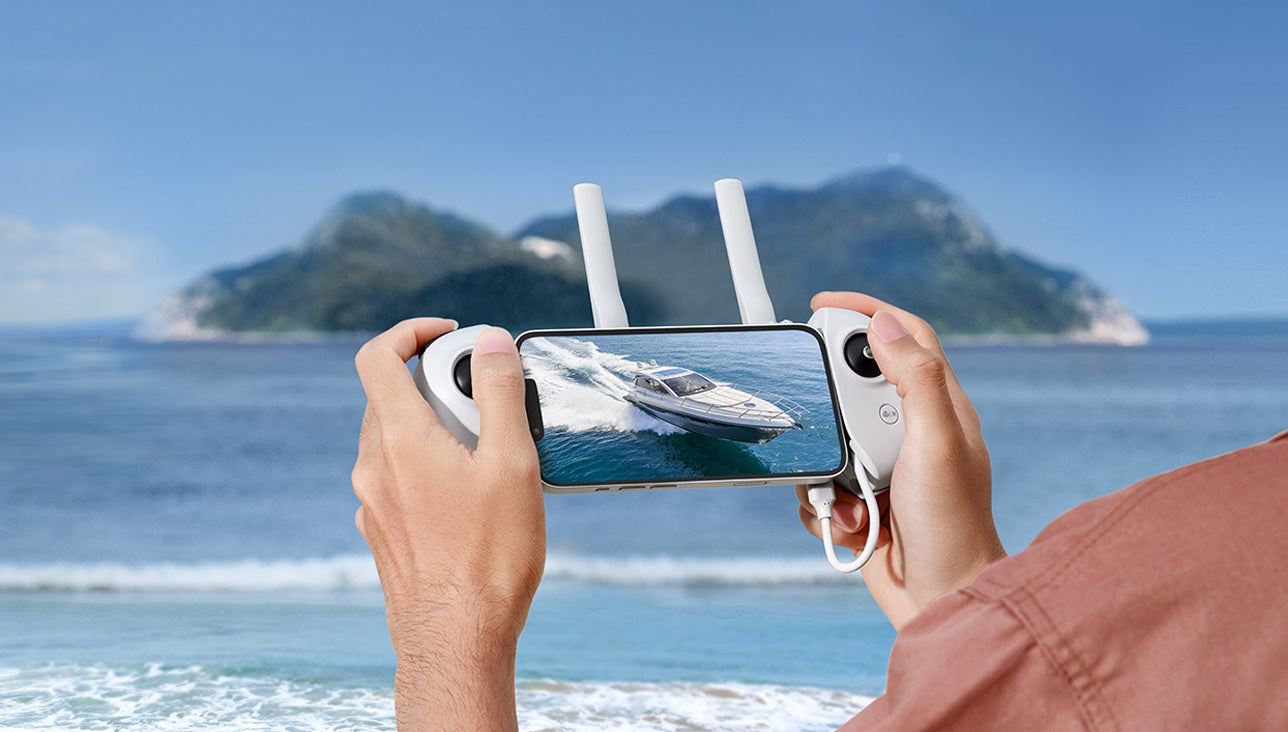Wireless image transmission quality is a core factor in the drone flying experience. Excellent transmission technology ensures stable, clear, and smooth images, as well as resistance to interference, obstacles, and low latency. Signal reception sensitivity, antennas, obstacles, and electromagnetic interference can all affect transmission performance during flight. Today, let's explore how to achieve better image transmission quality and longer range by adjusting the remote control antennas during actual flight.
When fly the ATOM or ATOM SE, it's usually necessary to align both antennas directly towards the drone to obtain optimal directionality and extend the control range. If you encounter image freezing issues at close range during flight, promptly check if the remote control antenna orientation is correct. Below are some setup guidelines to help you better understand this adjustment process.
1. Please confirm whether the antenna plane of the remote controller is aligned with the direction of the drone. Do not point the top of the antenna towards the drone, as this will weaken the signal.


2. Please confirm whether the antennas of the remote controller are unfolded correctly. Do not cross the antennas, or press the antennas against your mobile device.

3. Do not turn your back to the drone. During flight, please keep the direction of the remote controller and the antenna plane aligned with the drone at all times to ensure the optimum video transmission quality (whether the remote controller is aligned or not will be displayed on the map/attitude indicator in the lower left corner of the flight interface, and the drone icon will turn green to indicate that the direction has been aligned).

If none of the above methods can solve the problem of lag in short-range video transmission it may be that there is strong interence of 2.4G or obstacles,etc.in the flight environment,and it is recommended to change the area and try to fly again.

